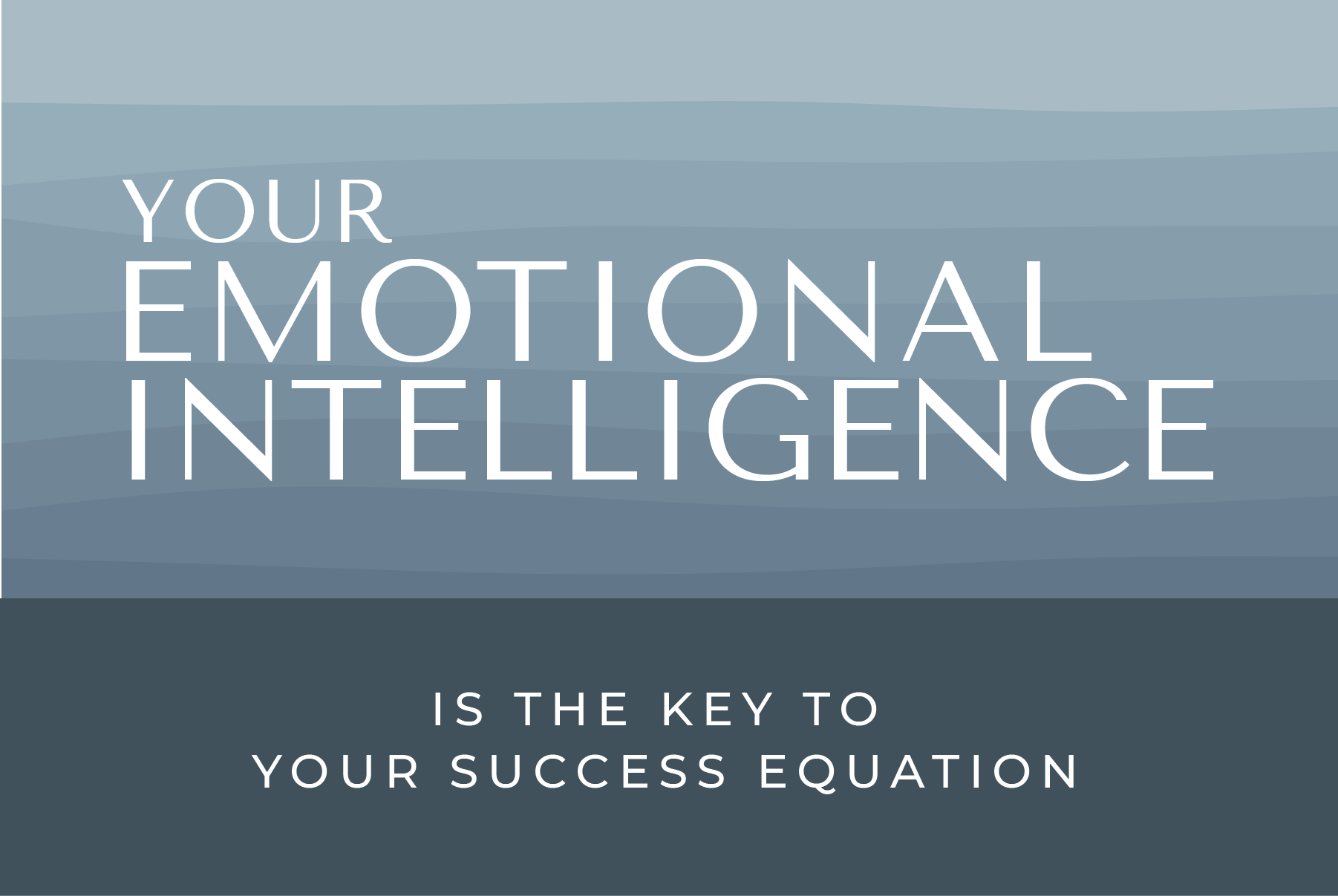
Your Emotional Intelligence Quotient is Key to Your Success Equation
Inspired by this week’s episode of the Moms Making Six Figures Podcast with Brenda Lee, Emotional Intelligence Expert, who believes in the power of identifying our perspective and pushing through our conditional gaps to tap into our mind’s subconscious.
Part of the human experience is suffering. And sadly many of us have experienced that suffering at the hands of another person in our lives, whether it’s the negative comments made by our father-in-law brushed off as ‘just his personality’, a boss who always asks us to stay late making our work-life balance that much harder to attain, or a poorly timed “friendly reminder” from the HOA about the state of our lawn, all of this suffering is imposed by and met with an Emotional Intelligence Quotient (or in the case of suffering’s worst offenders, the lack thereof). And while we all know the old adage rings uncomfortably true, that we can’t control others, only ourselves, by improving our own EI (Emotional Intelligence) we will change our own perceptions of, and approaches to suffering, and model, for the less emotionally intelligent, the common denominator in the happiness and success equation.
The theory of EI was brought to the forefront of American psychology by Daniel Goleman in the 1990s. While the concept was widely accepted in the field of psychology, employers were reluctant to embrace EI in the workplace. Now, however, research has found that emotional intelligence is not only foundational to achieving personal happiness and success, but that it is also the strongest predictor of workplace effectiveness.
Here are the five key components of Emotional Intelligence, how to improve your skill set in each, and how each component, when put into practice, can benefit your personal and professional life.
Self-awareness
Individuals who are self-aware can identify their emotions and the impact of those emotions on their thoughts and behavior; they know their strengths and weaknesses and have self-confidence.
- Keep a journal— Journals help to improve your self-awareness. Spending just a few minutes each day recording your thoughts can begin to move you toward greater self-awareness.
- + The pay-off: Your mental health. Uncontrolled and unaddressed emotions and stress can take a toll on your mental health. Learning to understand, identify and get comfortable with your emotions in order to manage them will help you to improve both your relationship with yourself and others, thereby leaving you feeling less lonely and isolated.
Self-regulation
Individuals who are able to self-regulate can manage their emotions in healthy ways, take initiative, follow through on commitments and adapt to changing circumstances; they can control impulsive feelings and behaviors.
- Hold yourself accountable— Easier said than done, but if you have a tendency to blame shift, it’s time to take some ownership. Make a commitment to, and a habit of, admitting your mistakes, and accepting the consequences. You will have more respect for yourself, and quickly earn the respect of those around you.
- + The pay-off: When you understand your emotions and you are capable of controlling them, you’re better able to express how you feel and to understand how others are feeling. This improves your communication and will allow you to establish stronger relationships both at work and at home.
Motivation
Individuals who are self-motivated work consistently toward their goals and have extremely high standards for the quality of their work.
- Re-examine and find your why— If you’ve lost that loving feeling for your career or any facet of your personal life, take some time to rediscover your why and get to the root of your discontentment. Utilize the 5 Whys Technique created by Sakichi Toyda, founder of Toyota industries.
- + The pay-off: High emotional intelligence helps you to better understand the “…social complexities of the workplace [including how to] lead and motivate others, and excel in your career. Many companies now rate emotional intelligence as important as technical ability…”.
Empathy
Individuals who have a strong capacity for empathy understand the emotions, needs, and concerns of others; they pick up on emotional cues.
- Pay attention to your body language— An often underrated, but hugely important facet of how others perceive us, perceiving them, is our body language. Learn to control your own body language to prove you are someone who is truly empathetic and open, and learn to read others’ body language to get an accurate read of how someone truly feels.
- + The pay-off: By investing time and effort to really pay attention to others, you’ll actually gain insight into your own emotional state as well as your values and beliefs. When we pay attention to others, their needs, and their overall well-being, we foster safety and establish trust in our relationship.
Social Skills
Individuals who possess strong social skills can maintain good relationships, communicate clearly, inspire and influence others, work well in a team and manage conflict; they recognize the power dynamics in a group or organization.
- Learn conflict resolution— No one likes conflict, but it is inevitable. Knowing how to manage conflict and to successfully resolve it is essential to honing your social skills and finding success in both your personal and professional endeavors.
- + The pay-off: When you are in tune with your emotions you are better able to connect to other people and the world around you. Your emotional intelligence directly correlates to your social intelligence; the greater your social intelligence the more your stress will be reduced and the more balanced your nervous system will be through social communication leaving you feeling loved and happy.
While suffering is a part of the human experience, it doesn’t have to define it. When we take the time to invest in our own emotional intelligence, we benefit not only our own happiness and success, but we also become a multiplier in the lives of those around us. By taking ownership over our own progress at home and in the workplace, we can reduce our own suffering and the suffering experienced and imposed by others. The work is worth putting in for the reward, as psychologist Travis Bradberry notes, when M.B.A. students received emotional intelligence training (not a usual part of the M.B.A. program), “even after graduating from the program [they] had raised their [emotional intelligence] scores 40 percent. They had trained their brains. Practice doesn’t make perfect, but practice make things habitual.”


Post a comment:
You must be logged in to post a comment.